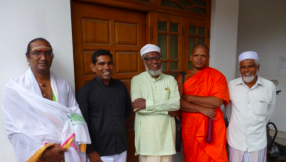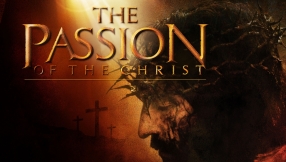
A row at America's Council for Christian Colleges and Universities (CCCU) over gay marriage came to a head on Monday with the withdrawal of two colleges whose policies have been making waves.
Goshen College in Indiana and Eastern Mennonite University in Virginia expanded their hiring and benefits policies in July to include same-sex couples. This prompted two other colleges – Union University and Oklahoma Wesleyan – to withdraw from CCCU in protest, with more thought likely to follow.
Now Goshen and Eastern Mennonite have fallen on their swords, solving a problem for CCCU but leaving Christian education in the US with some difficult questions.
Christian colleges and universities? There can't be too many of them, surely?
This is not Britain. There are hundreds of them – the CCCU alone has 121 members in North America and there are plenty more that don't belong to it. They make a sizeable contribution to US higher education and some of them, like Baylor University, are very well regarded.
That's me told. But I'm not sure I quite see what the problem is.
The US Supreme Court has declared same-sex marriage legal in federal law. That means that Christian colleges feel vulnerable to legal challenges about their employment policies. They might want to restrict hirings and benefits to heterosexual married couples, but they worry that they might not be able to.
Are they right?
So far, no, though Americans United for Separation of Church and State did launch a 'Protect Thy Neighbor' campaign aiming to thwart colleges and other religious institutions seeking exemption. The project is aimed among other things at preventing policies that would "allow government-funded grantees and contractors to use religion as a reason to hire, fire, and withhold services in taxpayer-funded programs".
On the other hand, the head of the Internal Revenue Service, John Koskinen, promised that he would not initiate any move to remove the tax-exempt status of religious universities and colleges that oppose same-sex marriage.
So they haven't been driven back to the last ditch yet, then?
By no means. However, it's important to understand that "Christian" colleges come in all shapes and sizes, from big universities that had a Christian foundation years ago but don't sit comfortably with today's evangelical subculture, to small Bible colleges which might teach six-day creationism. Other Christian institutions, like Hope College in Michigan and Belmont in Tennessee – not part of CCCU – had already extended equal benefits to same-sex couples.
To the outsider, it's all a bit perplexing.
Yes, but think of it this way: the stresses within the membership of CCCU represent the stresses within the wider Church. The custodians of conservative Christian colleges believe they're holding the line against a wave of liberalism which threatens the historic doctrine and identity of the Church. Setting an example of orthodox faithfulness to young people is very, very important. So many of them are wary of guilt by association – their own institution might not be gay-friendly, but they don't want to be in any kind of relationship with another that is. For them, to be Christian is to oppose the normalisation of homosexuality.
Isn't it a bit like King Canute, though? We live in the modern world, after all.
Wash your mouth out with soap. Conservatives would argue that tradition and orthodoxy are worth fighting for, and that there's nothing inevitable about social change. They are not King Canutes, they are that little boy with his finger in the dyke. Give up now and the floodwaters of liberalism will overwhelm the world.
Realistically, though...?
Realistically, legislation and increasing public acceptance of homosexuality will create more pressure on conservative Christians in all areas of life. They will have to decide how far to resist and how far to compromise. It's not going to be easy, and there will be a lot of infighting and name-calling as different bodies make different choices.













